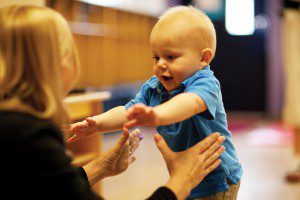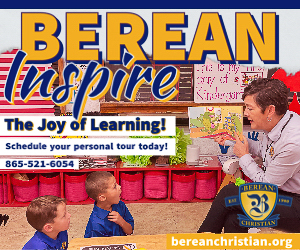Brain research tells us that, of the 100 billion (!) nerve cells we are born with, the ones we are most likely to keep longest are the ones that are used regularly in our interaction with the world around us. This does NOT mean that we can increase our child’s intellectual or developmental competence through so-called ‘brain stimulation’ videos or surround-sound cribs. Infants and toddlers enjoy learning first and best the things they learn in their relationships with the people that care for them.
Some things to keep in mind for the development of their brains:
 · Children can distinguish the voice of their father from their mother at birth – and their handling styles at six weeks.
· Children can distinguish the voice of their father from their mother at birth – and their handling styles at six weeks.
· The most useful kind of stimulation is the kind babies can manage, learn from, and interact with. Vocalizations like the coos and giggles they initiate should be returned in kind – matching volume, pitch, and rhythm if you can. Be alert because they’ll often throw in a variation. The same is true for older children who sing and initiate games like peek-a-boo or patty cake. Tapes or videos are no match for the joy and value of ‘live’ interactions.
· Want to encourage a positive self-image? For babies, tender and frequent touch makes them feel treasured, and for toddlers and preschoolers, install a (safe) full-length mirror on the back of a door and provide dress-up or ‘pretend’ clothes and just watch them feel special.
· Keep your eyes and ears open for emerging motor skills, interests, words, emotions, and feelings. When such competencies are new, they are both adorable and vulnerable. Remember not to overwhelm children by requesting a ‘show’ of their new tricks. This can be over-stimulating and cause quite the opposite effect – anxiety about new abilities instead of confidence. Let children practice and enjoy their new skill.
HOW you are as a parent with your children matters far more than any particular thing you may ever DO with them. Development is not a race; it is a process that unfolds uniquely in each child. Rushing development erodes children’s belief in, and joy of, their own emerging abilities, replacing joy with frustration and discouragement – too high a price in my book.
Suggested resource: www.zerotothree.org
Article written by Kyle D. Pruett, M.D. an advisor for The Goddard School®. Dr. Pruett is an authority on child development who has been practicing child and family psychiatry for over twenty-five years. He is a clinical professor of child psychiatry at Yale University’s Child Study Center.
To learn more about The Goddard School in Knoxville, you can check out their website for the Farragut and Knoxville location.



















